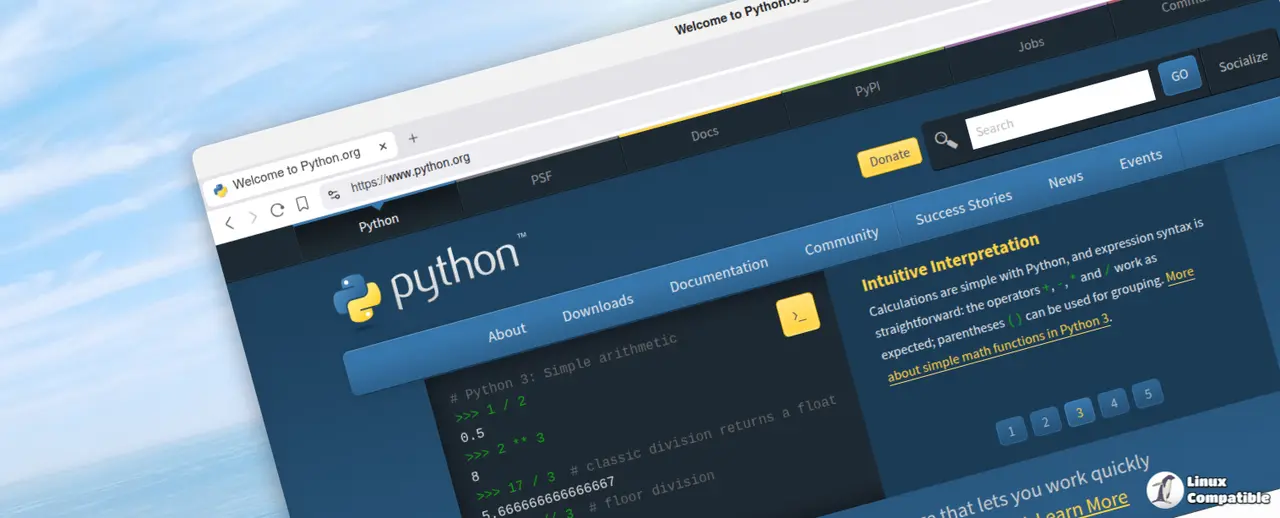Python has released two significant updates: Python 3.14.0rc2 and Python 3.13.7. The 3.14.0rc2 version introduces several new and enhanced features, including free-threaded Python, deferred annotation evaluation, template string literals, multiple interpreters, and Zstandard compression support. Conversely, Python 3.13.7 serves as the seventh maintenance release for the 3.13 series, focusing on improvements like better error messages, a built-in HMAC implementation, and a command-line interface for monitoring running Python processes.
Notably, Python 3.14.0rc2 was initially expected to be released on August 26, 2025, but a bug fix necessitated changes in the bytecode format (.pyc files), rendering previous files incompatible. As a result, users will need to recompile .pyc files created for rc1.
Key new features in Python 3.14 include:
- PEP 779: Official support for free-threaded Python.
- PEP 649: Deferred evaluation of annotations to enhance their usability.
- PEP 750: Introduction of template string literals (t-strings) using f-string syntax.
- PEP 734: Support for multiple interpreters in the standard library.
- PEP 784: Inclusion of a new module, `compression.zstd`, to implement the Zstandard compression algorithm.
- PEP 758: Simplified exception handling with optional brackets in `except` and `except*` expressions.
- Enhanced syntax highlighting in the PyREPL and color support in various command-line interfaces.
- PEP 768: A zero-overhead external debugger interface for CPython.
- Enhanced UUID handling with new version support and performance improvements.
- PEP 765: Restrictions on using return/break/continue statements that exit a finally block.
- PEP 741: Improved C API for Python configuration.
The 3.13.7 release addresses critical issues from version 3.13.6, specifically a regression in the SSL module that caused blocking when reading from TLS-encrypted connections. It also includes several bug fixes that were expedited for this release.
Overall, these updates reflect Python's commitment to continuous improvement and enhancing user experience with new functionalities and optimizations. Python enthusiasts and developers are encouraged to explore these new features and adopt the updates in their projects
Notably, Python 3.14.0rc2 was initially expected to be released on August 26, 2025, but a bug fix necessitated changes in the bytecode format (.pyc files), rendering previous files incompatible. As a result, users will need to recompile .pyc files created for rc1.
Key new features in Python 3.14 include:
- PEP 779: Official support for free-threaded Python.
- PEP 649: Deferred evaluation of annotations to enhance their usability.
- PEP 750: Introduction of template string literals (t-strings) using f-string syntax.
- PEP 734: Support for multiple interpreters in the standard library.
- PEP 784: Inclusion of a new module, `compression.zstd`, to implement the Zstandard compression algorithm.
- PEP 758: Simplified exception handling with optional brackets in `except` and `except*` expressions.
- Enhanced syntax highlighting in the PyREPL and color support in various command-line interfaces.
- PEP 768: A zero-overhead external debugger interface for CPython.
- Enhanced UUID handling with new version support and performance improvements.
- PEP 765: Restrictions on using return/break/continue statements that exit a finally block.
- PEP 741: Improved C API for Python configuration.
The 3.13.7 release addresses critical issues from version 3.13.6, specifically a regression in the SSL module that caused blocking when reading from TLS-encrypted connections. It also includes several bug fixes that were expedited for this release.
Overall, these updates reflect Python's commitment to continuous improvement and enhancing user experience with new functionalities and optimizations. Python enthusiasts and developers are encouraged to explore these new features and adopt the updates in their projects
Python 3.14.0rc2 and 3.13.7 released
Python 3.14.0rc2 introducing new features such as free-threaded Python, deferred annotation evaluation, template string literals, multiple interpreters, and support for Zstandard compression algorithms. Python 3.13.7, the seventh maintenance release, includes improvements in error messages, a built-in HMAC implementation, and a new command-line interface for inspecting running Python processes.


